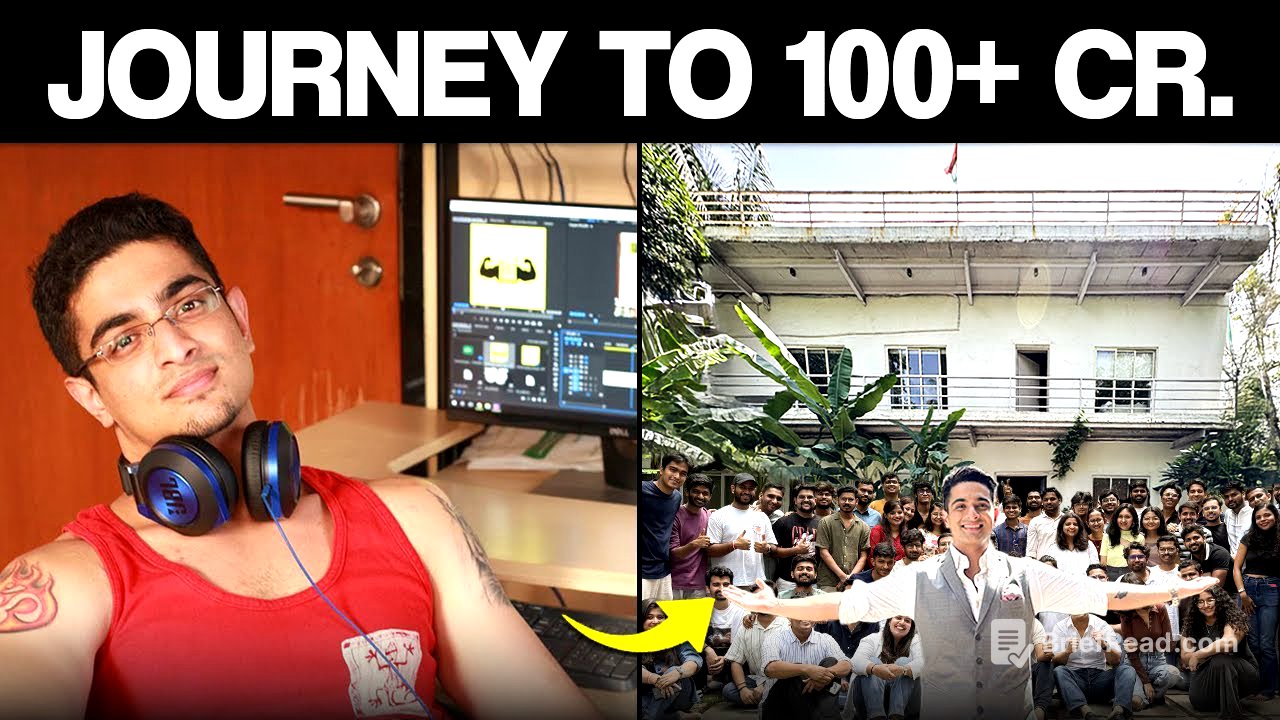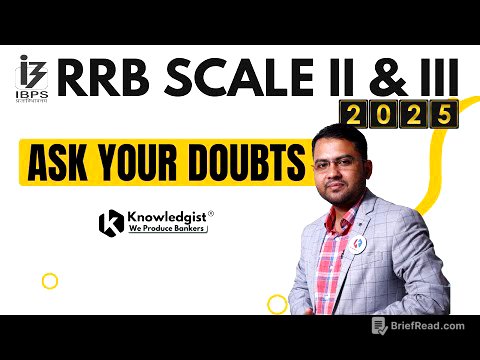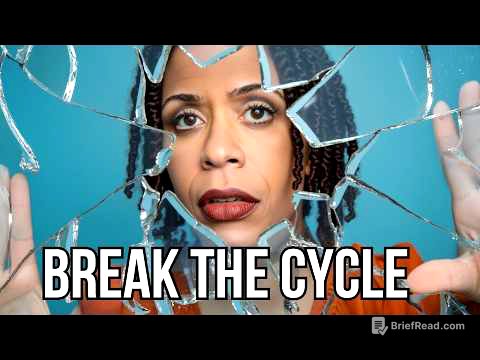TLDR;
This video is all about the career lessons learned over the last 10 years of being a content creator and entrepreneur. It talks about the importance of team culture, military-style systems, spirituality in business, and a martial arts mindset. The key takeaways are:
- Build a sports-based team culture with optimism and continuous improvement.
- Implement military-style systems with ownership mentality and clear processes.
- Incorporate spirituality by giving back to the community and focusing on profitability.
- Adopt a martial arts mindset with discipline, agility, and a student mentality.
Intro: 10 Years of Career Lessons [0:03]
The video marks 10 years of being a YouTuber, a journey filled with challenges, including a recent controversy that led some to believe the career was over. However, the content creation industry provides skills applicable to other sectors, as demonstrated by running businesses like Monk Entertainment, Level Supermind, and Skillhouse, which have created over 400 jobs in India. Even without content creation, there are other businesses to rely on. The video aims to share evergreen career lessons learned from scaling a business ecosystem of over 100 crores, hoping to provide value to young professionals and entrepreneurs.
Pillar 1: Sports Mentality - Building a Winning Team [1:33]
The first big mistake was creating a "family culture" in the office, which hindered individual growth. Instead, a sports-based culture should be created, encouraging individual growth and calling out each other's mistakes. Hiring should focus on clarity for the position and fitting into a similar vibe, like Virat Kohli's optimism. Optimism is crucial for organizational growth, even if it's seen as toxic positivity. Being optimistic can help in getting a better job or promotion by looking at situations with a solution-oriented mindset. It's important to keep earning your place by adding value to the team and challenging yourself, regardless of your position.
Pillar 1: Sports Mentality - Youth and Experience [4:49]
Great teams combine experience and youth. While Gen Z is often criticized, every generation faces similar narratives. A young team is creative but unstable, while an older team may struggle to stay relevant. Formation changes or role changes, like in sports, can unlock potential with the help of mentors or leadership. Professionals should be experimental, seeking inputs when young and helping others when experienced. Game taping, or reviewing mistakes and positives, is essential for improvement. Protocols should be in place to review mistakes and prevent repetition, remaining stoic and understanding that one bad year doesn't define a career.
Pillar 2: Military Mindset - Systems and Processes [7:38]
The second pillar is based on lessons from military veterans, emphasizing consistent delivery of results through military-style systems and processes. Ownership mentality and delegation are crucial, addressing why some don't get promotions or why businesses don't grow. Early hires should be leaders, and you should only hire people you'd be happy to work for. Teams should operate more like a military organization than a corporate one. Leadership is a learnable skill that starts with ownership. Treat the organization like your own, and if promotions aren't based on ownership, switch organizations. Business owners should coach their team, allowing them to make mistakes and grow into leaders.
Pillar 2: Military Mindset - SOPs and Feedback [10:16]
Content creation requires systems and processes, built on Standard Operating Procedures (SOPs). Organizations should be system-dependent, not person-dependent, to avoid disruption when someone leaves. Tools like Odoo can streamline processes by connecting HR, inventory, sales, and finance. Seeking feedback is crucial, even intense feedback. When giving feedback, mix in good with the bad. Surround yourself with people who challenge you regularly to ensure continuous growth. Listen to feedback objectively, even if you initially disagree. Project professionalism through appearance, punctuality, and consistent quality. Maintain calm and avoid gossip in the office.
Pillar 3: Divine Profitability - Spirituality and Money [14:38]
Spirituality is a part of business, viewing money as energy. If you have excess money, spend it on the welfare of the world, giving back to the society that provided it. If not ready for social work, give back to your team. Keep 5-10% of your income aside for the community and the earth. This spiritual outlook keeps money flowing. Focus on profitability from day one, following the "gala mentality" from the Marwari community, where selling price minus cost price equals profit. Reinvest profits into the business before spending on luxuries. Respect money by being professional and focusing on profitability.
Pillar 4: Martial Arts Mindset - Discipline and Agility [17:23]
The final pillar is the martial arts or samurai mindset, instilled through judo and taekwondo classes. This creates a need for discipline. Make your career the martial art you adopt, leading by example and maintaining a student mindset. Agility, like Bruce Lee or Lionel Messi, comes from years of training and practice. Absorb knowledge, practice professionalism, and be ready to change direction quickly. Be water, adapting based on customer feedback and keeping your mind open to change. Never be afraid to ask "stupid" questions, creating a dojo mentality where seniors help juniors and no question is discouraged.
Outro: Staying in the Game [20:06]
It's difficult to stay in the game and rely on your skills and self-belief. View difficult times as speed breakers, having faith in your team and systems. If your pillars of thinking are right, life and careers will take care of themselves. The channel aims to be a dojo for the community, providing value.









